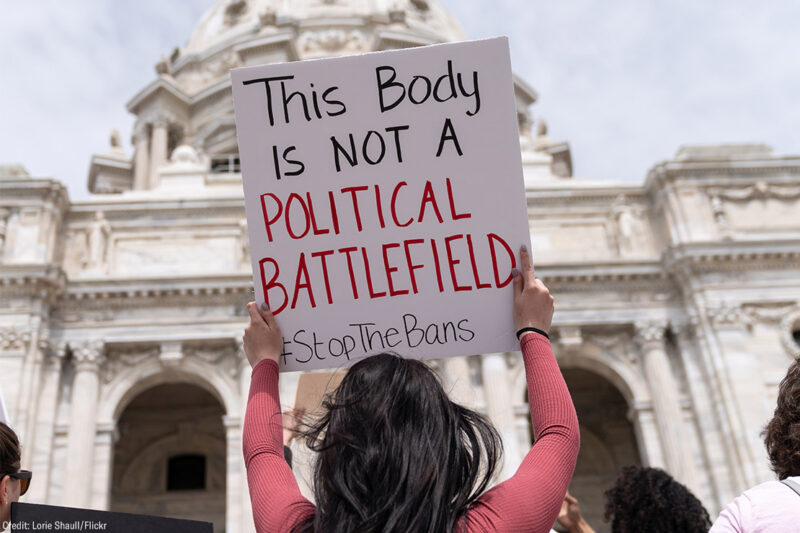The Offensive Hypocrisy of Banning Abortion for a Down Syndrome Diagnosis


This piece originally appeared on .
Last week, the full Sixth Circuit Court of Appeals announced it would hear arguments in a challenge to HB 214, an Ohio law criminalizing abortion if even part of a personтs reason for seeking the abortion is a fetal diagnosis of Down syndrome.
Politicians have packaged this law somewhat differently from the 20 other restrictions in Ohio since 2011, but make no mistake: This is just another not-so-thinly-veiled attempt to push abortion out of reach.
And it is not only in Ohio т similar bans have been enacted in Arkansas, Indiana, Kentucky, Missouri, North Dakota, and Utah (just several of the more than 480 politically-motivated, medically unnecessary abortion restrictions politicians have enacted nationwide since 2011), and introduced on the .
Proponents of these bans claim that their goal is to protect the rights of people with disabilities. Such attempts to co-opt the mantle of disability rights to ban abortion are not only hypocritical but also deeply offensive.
Letтs be clear on what HB 214 does not do. It does not ensure that pregnant people are given information, resources, and support to raise their children т including children with Down syndrome (or any other disability) т with dignity.
It does not expand access to necessary services and opportunities or protect any person with disabilities from discrimination in education, housing, employment, medical care, or any other area of life.
It does not make it easier for people with disabilities to have т and keep т their children. And it does not protect people with disabilities from violence and abuse, such as coerced sexual and reproductive health decisions, , and police violence.
Instead, what HB 214 does, indeed, the only thing it does, is take away an individualтs ability to make one of lifeтs most deeply personal decisions and turn it over to politicians.
The hypocrisy is stunning: While Ohio politicians are passing abortion bans under the guise of disability rights, parents of with disabilities are struggling to afford the services their children need to thrive.
Cuts in funding for these necessary services , and Ohio provides for people with disabilities than, for example, its neighbor Pennsylvania.
And the government officials defending Ohioтs ban in court? They are the same officials making it even more difficult for disabled Ohioans to . The list goes on and on.
There is no question that stigma, prejudice, and misconceptions about people with disabilities are widespread. But forcing someone to carry a pregnancy to term against their will does nothing to tackle underlying and systemic ableism and discrimination against people with disabilities.
On the contrary, forced pregnancy threatens a personтs physical, mental, and emotional health, as well as the stability and wellbeing of their family, including existing children.
We will never address discrimination and the needs of people with disabilities by stigmatizing people who have abortions. We cannot know all the personal circumstances behind an individualтs decision to continue or end a pregnancy, including in cases of fetal diagnoses.
These decisions are often based on a multitude of factors т which is why the pregnant person and their family best make these decisions, and them alone.
Contrary to what anti-abortion politicians want you to believe, efforts to promote the rights of people with disabilities need not compromise other fundamental rights.
Indeed, the disability and reproductive rights and justice movements share common goals: for every person to decide what happens to their own body and for every person to have the rights, resources, and respect to live their full potential. They also share a common foundation in the principles of equality, dignity, and self-determination.
For years, we have seen politicians push medically unnecessary abortion restrictions in the name of womenтs health and use junk science to defend unconstitutional bans on abortion.
Now, they are advancing their extreme anti-abortion agenda by claiming abortion bans are necessary to protect people with disabilities from discrimination. Enough is enough.
Under no circumstances should politicians be allowed to force any individual to make particular decisions about reproduction, including forcing them to become a parent against their will, depriving them of the ability to become a parent, or interrogating their own decisions about pregnancy. That hurts all of us.


